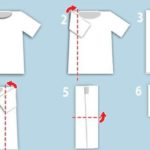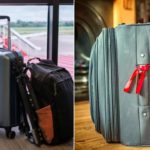The article is shared by a flight attendant with 10 years of experience who shares on the insider page.
Even when giving up the job as a flight attendant, I still continue to travel around the world and have now set foot in a total of 74 countries.
When I travel around the world for work and leisure, I have learned one or two things about making travel easy, not exhausting, and as interesting as possible.
Below are 9 tips I have learned in my days as a flight attendant and still use to this day:
1. Stay up to bed time on the day you arrive in a new time zone
After an overnight flight, I always want to collapse immediately onto my hotel bed. But as someone who used to fall asleep right after landing and had to struggle to adapt to a new time zone, I advise you to stay awake at this time.
I used to have a rule that I would just take a nap if the plane landed in the morning. But if I arrived anytime after noon, I forced myself to stay awake until evening.
Providing a lot of energy on the first day until bedtime helps me to adapt to the new time zone, have the best sleep possible, and “beat” jet lag.
Finally, when it’s time to sleep, remember to set an alarm so you don’t sleep through the morning.
2. Ditch checked baggage and opt for carry-on only
When I was a flight attendant, I had a habit of traveling with just a carry-on suitcase and a tote bag.
This method allows me to always have my belongings with me and reduce the risk of lost luggage halfway around the world. Traveling with carry-on luggage also means I can avoid long waits in line for check-in and save time picking up luggage.
Most airlines allow passengers to carry on luggage plus 1 personal item or small backpack into the cabin, but you should still check the baggage policy before arriving at the airport.
If you pack everything in your carry-on luggage, I suggest you free up space in your bag by wearing larger items, such as coats and shoes, on the plane.

3. If you check your luggage, invest in luggage trackers and packing aids
Mobile trackers and packing aids are very helpful tools for travelers checking their luggage.
I wish mobile trackers (like Apple AirTags) had appeared when I was a flight attendant. They easily fit into suitcases to help locate the position of any lost bags.
Packing aids are your best friend when you need to carry a lot of items on long trips. If you are looking for a specific item in your suitcase, they will save you a lot of time.
4. Place a shoe in the hotel closet to remember valuable items
Leaving a hotel and realizing that you have left your most important and valuable belongings in the closet is a terrible thing.
I have a simpler solution to help you avoid this mistake. When you put all your belongings in the hotel closet, add a shoe to it, preferably the pair of shoes you will wear on checkout day to avoid forgetting.
You might not leave the hotel wearing only one shoe, so this tip is a great way to make sure you remember to clean out the closet before you leave.
This was the first advice another crew member gave me when I was a flight attendant. I found it so helpful that I passed it on to countless other crew members and passengers on other flights for many years.
5. Not every hotel has an iron, but you can still remove wrinkles without an ironing board
Many hotels around the world do not have an ironing board, which is not ideal when my flight attendant uniform always needs to be immaculate and not allowed to be wrinkled.
To avoid paying for ironing services or waiting for a common ironing board, I bring a travel steamer to remove wrinkles from clothes.
If you forget or cannot take it with you, you can use the hairdryer in the hotel room at the hottest setting and blow air close to your clothes.
In addition, you can hang clothes in the bathroom, turn on the shower at the highest temperature, and close the door for 10 minutes. In my experience, bath steam will help flatten wrinkles.
6. Download translation apps before you arrive at an international destination
Before your flight lands, be sure to download at least one translation app, such as Google Translate, so you can use it offline.
This tip has helped me a lot in trips to places where English is not widely used and internet access is limited. Even if the translation is not perfect, the app will help convey some of your message, reducing anxiety when setting foot in a foreign country.
I also recommend downloading currency conversion apps before you arrive so you can also use them offline.
7. Carry necessary medications
Just because you can buy some prescription and non-prescription drugs anywhere does not mean they will be available when you travel.
Every time I am about to fly, I usually prepare a basic travel kit with all the necessary medications to help me feel safer on my trip. I also advise you to bring backup in case you lose some or extend your trip.
Just make sure you have researched drug laws in the places you are visiting, as some legal drugs in the United States are prohibited in other countries.
8. Contact the hotel directly to inquire about the best room rates
Most people think that hotel booking platforms usually offer the cheapest room rates, but that’s not always the case. If you want to stay at a specific hotel, call or email the hotel directly to request a lower rate.
I was surprised at how many times this tip worked for me. Sometimes this method even helped me upgrade to a higher room category.
For guests who want a good night’s sleep, call the hotel and request a room in a different area of the hotel outside the pool or entertainment area.
9. Consider getting a prepaid travel card to help save your budget
When I was a flight attendant, I always received a prepaid travel card. It helped me maintain a tighter budget and allowed me to withdraw money in local currency.
However, some types of prepaid travel cards come with fees, so make sure you do your research when preparing for your trip. By doing so, you can know whether a prepaid travel card, debit card, cash, or credit card is the best choice for you.
According to Tổ quốc





































